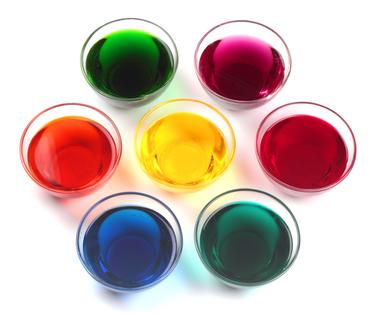Environmental Nutrition: Collagen peptide supplements; Food dye safety
Q: Are there any benefits to taking collagen peptide supplements?
A: Eating well, exercising, and getting enough sleep are already recognized as contributing to successful aging, but many people long for more than that. They want to continue to look and feel young. Starting at age 30, people lose about 2 percent of their collagen per year, which accounts for the wrinkling of skin associated with aging, and may be related to loss of muscle mass and strength. Collagen, the main component of connective tissue, is found in bones, muscles, skin, and tendons. Oral hydrolyzed collagen peptide supplements have been shown in some studies to improve skin appearance in older people, by tightening the skin and increasing elasticity. Collagen peptide supplementation in combination with resistance training has shown improvement in body composition and muscle strength in elderly men. So far there are only a few clinical studies supporting this outcome, thus there is not enough evidence to support purported claims. Beware that collagen peptide supplements may cause an allergic reaction and affect appetite. Bone broths made from meat bones -- a source of collagen -- have been touted to improve appearance of aging skin, relieve joint pain, and improve digestion. Bone broth, however, is not a good enough source of collagen to effectively fight aging.
--Sharon Salomon, M.S., R.D.
Q: Are artificial food dyes dangerous?
A: Companies add food dyes to products to make them look tasty and appealing to consumers. Although some synthetic food dyes have been banned from use in the U.S., nine remain on the FDA's approved list. The FDA states that color additives are safe when they are used in accordance with FDA regulations. However, synthetic dyes do not provide any nutritional benefits, and preliminary research has linked them with potential risks related to cancer, birth defects, allergic reactions, and problems in children, including hyperactivity, learning impairment, irritability, and aggressiveness. Additional research is needed to confirm the side effects of food dyes.
Due to health concerns surrounding artificial dyes, and an increased customer desire for "natural" foods without synthetic ingredients, many companies have started using natural colors obtained from plants and spices. Examples include beta-carotene, paprika, beet juice, algae, and turmeric. Although these may be better options and are generally considered safe, natural dyes also may cause allergic reactions in certain individuals. It is important to remember that replacing artificial colors with natural ones doesn't necessarily make the food a healthier choice. Often foods containing dyes tend to be heavily processed, and high in fat, sugar, and sodium.
--Kaley Todd, M.S., R.D.N.
(Environmental Nutrition is the award-winning independent newsletter written by nutrition experts dedicated to providing readers up-to-date, accurate information about health and nutrition in clear, concise English. For more information, visit www.environmentalnutrition.com.)







